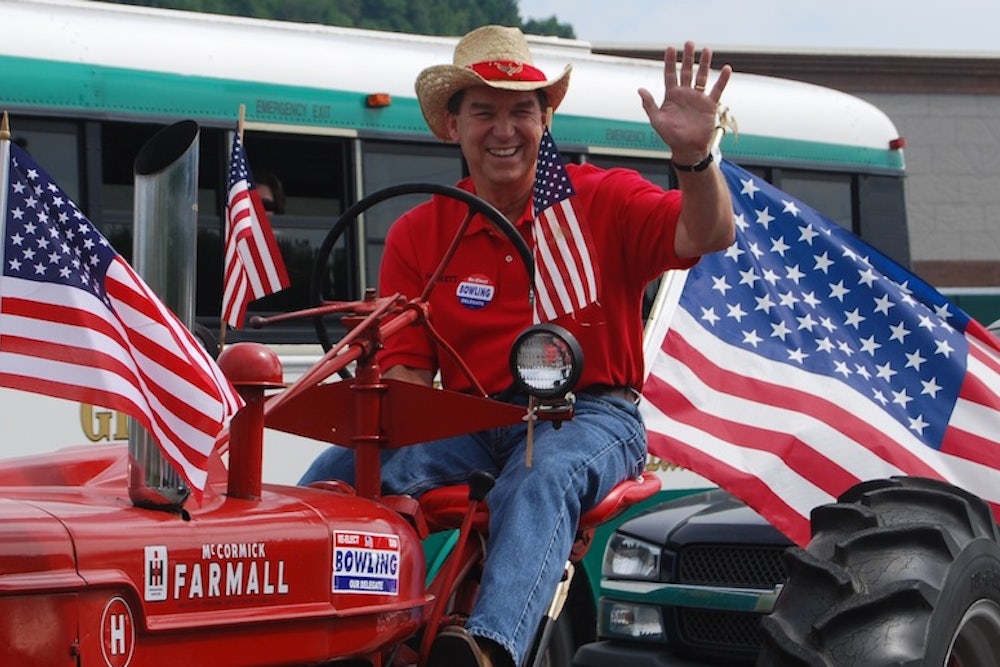The fight over expanding Medicaid in Virginia has taken a turn for the bizarre and perhaps the corrupt. It appears that a Democratic state senator has given up his seat in exchange for a job on the state tobacco board and a judicial appointment for his daughter. It could be actual bribery, which is a crime. Ian Millhiser makes that case at ThinkProgress if you want the details. But whether legal or not, it means Republicans will gain a majority in the Virginia Senate and, with that, get unified control of the legislature. It’s a prelude to an imminent standoff with Terry McAuliffe, the newly elected Democratic governor. The subject will be Medicaid.
Many of you know the background. The Affordable Care Act calls upon states to expand Medicaid, which covers low-income people, so that anybody with income below 133 percent of the poverty line would be eligible to sign up. That’s roughly $15,500 in annual income for an individual and about $31,700 for a family of four. So far, 26 states plus the District of Columbia have opted to do so. Among those that haven’t, Virginia is one of a handful where officials are actively debating whether to do so. The chart below, from Vox, shows which state is doing what.
McAuliffe made expanding the program one of his core campaign promises. Republicans oppose the expansion and, through the House, have passed a spending blueprint for the next fiscal year that does not include a bigger Medicaid program. McAuliffe had hoped the Senate would pass a spending bill that included the program. That may not happen with a Republican majority, even though some moderate members of the GOP support the expansion. Virginia’s fiscal year ends this month and McAuliffe has threatened to let the government shut down rather than sign a bill with no expansion.
The Democratic state senator stepping down is Phillip Puckett, who represents the state's 38th Senate district. Over the weekend, Laura Vozzella, who has been all over this story for the Washington Post, cited three anonymous sources who said Puckett had agreed to resign in exchange for the appointments for him and his daughter. Puckett has said he wants to relinquish his seat for family reasons, although he has not, as far as I know, answered specific questions about the odd timing and political circumstances of his decision.
The real scandal here, though, is what it means for the people Puckett represents. As my colleague Alec MacGillis reminds me, Puckett’s Senate district is in the Virginia’s southwest corner, abutting the borders of Kentucky and West Virginia. A few years ago, Mary Otto of the Post spent some time in Wise County, which is part of Puckett’s district, and filed a report about the desperate need for health care there:
Pain hides in these green mountains. Diseased hearts and clouded lungs, aching teeth and anxious minds.
But for three days a year, more than 800 volunteer doctors, dentists, nurses and other health-care workers come from all over Virginia and beyond to this isolated place in Appalachia to provide free medical care to those who cannot afford it. Sick and hurting people by the hundreds gather and wait for the gates of the Wise County Fairgrounds to swing open -- their presence a testament to the country's health-care crisis. …
"The need is massive," says [Stan Brock, the former television star who helps run the Remote Area Medical Volunteer Corps]. "We pick up everything from brain tumors to lung cancer to cervical cancer to breast cancer." ... even as the clinic saves lives and alleviates suffering, Brock knows it amounts to slapping a Band-Aid on a gaping wound. … Hospitals on county fairgrounds, Brock says, are not the answer.
What difference would the Medicaid expansion make here? A big one. According to a study by the Commonwealth Institute, more than 20,000 of the people living in Puckett’s district would qualify for Medicaid if Virginia lawmakers expanded the program. Medicaid is far from a perfect program, but the latest research suggests it probably improves physical health and saves lives. And there’s really no question at all that Medicaid improves financial security for people who can get onto the program.
This travesty isn’t unique to this corner of Virginia or to the state itself. Several million Americans could have health insurance if only conservative politicians opposed to the program would go along with the expansion. They have their reasons—they say the program is wasteful or harmful, or that it costs too much to be worth it, or that it encourages people to be lazy and unproductive.
It's impossible to say exactly who believes what and, of course, nobody knows what's going on in Puckett's mind. The consequences of inaction, alas, are perfectly clear.

